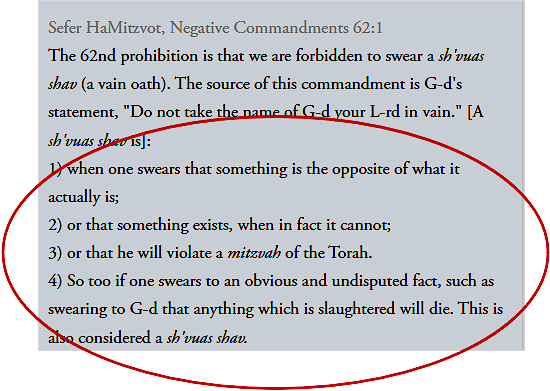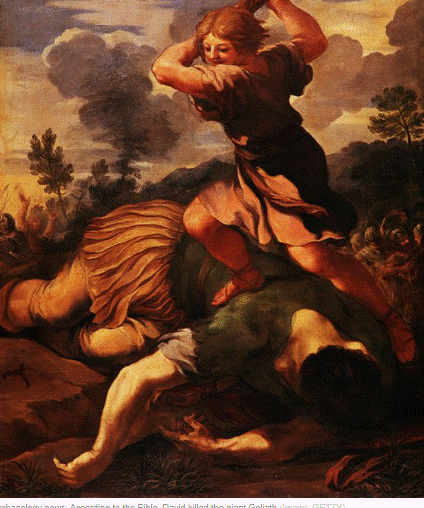RIZPAH - The Other Woman
Casualties of Broken Promises: Covenant and Generational Oaths
A Mothers Love
The story of Rizpah and her sons is a deeply unsettling passage from the Bible, one that lingers in the mind long after reading it. It's difficult to reconcile the idea of grown children being sacrificed as atonement for the sins of their deceased father, King Saul. Rizpah, the only concubine of the king, found herself in the agonizing position of surrendering her offspring to appease God for the secret genocide of the Gibeonites from the king’s command. I recall reading this story in the Bible a few years ago, and it has always bothered me deeply. I’m quit sure it will resound in the minds of any mother or father that loves their children.
Rizpah was the only concubine to Saul, Israel's first king. Although Saul and his son Jonathan fell in battle against the Philistines that included actual giants.
Rizpah's children from Saul survived the conflict. However, tragically she was compelled to surrender her sons along with the five grandsons of Saul, to be executed as retribution for their deceased father's (king Saul) actions.
Saul had promised his daughter Michal's hand in marriage to David after he defeated Goliath. However, Saul broke his promise, sending David away on a mission and then gave Michal to another man.
King Saul had broken the sacred oath and covenant made with the Gibeonites, who had tricked Joshua (300+ years earlier) into promising not to harm them but to accept them into the Hebrew nation. The Gibeonites were one of the seven Canaanite nations that had learned of the supernatural power of God over the Israelites as they were freed from slavery in Mizraim (Egypt), under Moshe (Moses).
Was this Karma? Or God? Or the power of words spoken? Or the ramifications of previous generations passing down through unchecked justified hatred? Rizpah, was the ‘other woman’ during a time when extra marital partners began creeping into Kingship. The devastating effects of Saul’s hatred came right back to his home, according to his ‘words.’
The Oath, Deception & the Gibeonites
In the vast, sun-baked wilderness of Canaan, the children of Israel trudged onward, led by Joshua, the mighty successor to Moshe (Moses). The Lord had commanded them to claim the land, driving out its inhabitants with unyielding strength. After days of marching, they arrived at a cluster of cities on the third day: Gibeon, Chephirah, Beeroth, and Kirjath Jearim. These fortified strongholds stood like silent sentinels, but their stone walls a useless defense against the children of Israel who had just conquered the cities of Jericho and AI.
A few weeks earlier, a group of ragged travelers had approached their camp, claiming to be from a distant land. They bore moldy bread, cracked wineskins, and tattered clothes as proof of their long journey. Joshua the Commander with the elders and leaders of the 12 tribes—had been deceived. Swearing an oath by the Lord God of Israel, they promised peace to these strangers, never suspecting they were locals from Gibeon, desperate to save their lives.
Now, as the truth dawned upon the congregation, anger rippled through the camp like a desert wind. "Why have we spared them?" shouted one man, his face flushed with fury. "They are ferocious giant hybrid Canaanites, enemies of our God!" The people murmured in agreement, their voices rising into a chorus of complaints. Women clutched their children closer, and warriors gripped their spears, eyeing the distant cities with resentment.
Tribal leaders gathered quickly, their faces etched with the burden of leadership. "We have sworn to them by the Lord God of Israel," one elder said, his voice steady but heavy. "If we break this oath, wrath will fall upon us. We cannot touch them." The group nodded grimly, knowing the sacredness of their word. "Let them live," Joshua proposed.
Joshua's Dilemma
Joshua stood tall, his armor glinting in the harsh light. "Why have you deceived us?" he demanded. "You claimed to be from far away, yet you dwell among us, in these very cities. For this, you are cursed. None of you shall be free; you will be slaves—woodcutters and water carriers for the house of my God."
The leader of the Gibeonites, wearing a weathered face but with trembling hands, stepped forward. "Please, hear us," he pleaded, "We heard how your God parted the Red Sea, toppled the walls of Jericho, and the city of Ai were struck down in your path. We were terrified for our lives, knowing we would be next. So, we devised this plan, pretending to be from afar, to seek peace with you. Now, we are in your hands. Do with us as you see fit—what is good and right in your eyes."
Silence fell over the crowd. Joshua's gaze softened slightly as he considered their words. He saw the desperation in their eyes, the raw fear of a people caught in the shadow of divine judgment. Though the deception burned in his heart, Joshua knew the weight of an oath sworn before God. He could not ignore it, for breaking it would invite greater trouble.
Turning to his people, Joshua declared, "We will honor our word. These men and their kin shall live, but they will serve as laborers among us." He looked back at the Gibeonites. "From this day forward, you are bound to us—gathering wood for our fires and drawing water for our needs, even for the tabernacle of the Lord."
The Gibeonites bowed low, relief washing over them as they had escaped death, but their lives were forever changed. As they were led away to begin their new roles, the Israelite camp slowly dispersed, the complaints fading into murmurs of acceptance.
Reflecting on the fragility of promises and the mercy of God, the Lord had delivered His people into the land. But even in conquest, there was room for grace—a reminder that not all battles ended in blood.
3rd Commandment Swearing: Correct Hebrew Meaning
King David, Gibeonites and Judgement
During a severe three-year famine in Israel, King David, son of Jesse and second ruler of the nation, turned to God for answers. He sought to understand the cause of this divine punishment. The Lord revealed that the famine was a consequence of King Saul's past actions: he had broken the ancient covenant sworn by Joshua, which guaranteed the safety of the Gibeonites, and had attempted to exterminate them. To rectify this injustice, King David called upon the Gibeonites, hoping to atone for Saul’s transgression with offerings of gold and silver. However, the Gibeonites refused monetary compensation, stating that riches could not replace the lives lost. Instead, they demanded justice according to the covenant law: retribution equivalent to the broken promise, which meant death to settle the matter. (II Samuel 21:1-13)
Rizpah - Wailing, Fearless Mother
Rizpah, Saul's concubine and Aiah's daughter, showed unwavering devotion to her deceased family. For ninety days, from the beginning of the harvest until the autumn rains, she remained vigilantly beside their unburied bodies, exposed to the elements and the dangers of wild animals and birds.
She spread sackcloth on a rock and vigilantly guarded the bodies of the hanged men, preventing birds and wild animals from defiling them day and night. When King David learned of Rizpah's actions, he was moved with compassion, and retrieved the bones of Saul, and his son Jonathan, from the Philistines who displayed them after Saul's defeat at Gilboa. David gathered the bones and buried Saul and Jonathan’s remains - in the family tomb of Kish in the territory of Benjamin. After fulfilling these commands, David's actions appeased God, and the land received divine favor once more. (II Samuel 21:10-14)
Berean Standard Bible
”…and if My people who are called by My name humble themselves and pray and seek My face and turn from their wicked ways, then I will hear from heaven, forgive their sin, and heal their land. II Chronicles 7:14Check your Mouth - the Unseen Realm Takes Notes
But I say to you, do not make an oath at all, either by heaven, for it is the throne of God… But let your statement be, Yes or No [a firm yes or no]; anything more than that comes from the evil one. (Matthew 5:34-37) Bible Amplified version. Words of Jesus.
“Life and death are in the power of the tongue, and those who love it will eat its fruit.” Proverbs 18:21. Wisdom from King Solomon, 3rd king of Israel.
“Consider what a great forest is set on fire by a small spark. The tongue also is a fire, a world of evil among the parts of the body. It corrupts the whole body, sets the whole course of one's life on fire, and is itself set on fire by hell.” James, one of Jesus 12 origial diciples. Brother of John both with tempers nicknamed by Christ as, the Son’s of Thunder. Bible, Book of James 3:5-13
Not many [of you] should become teachers [serving in an official teaching capacity], my brothers and sisters, for you know that we [who are teachers] will be judged by a higher standard [because we have assumed greater accountability and more condemnation if we teach incorrectly]. Amplified Bible for clarity. James 3:1
Faking the funk - Why? Jump in.
The parable of the 5 foolish virgins & the 5 wise virgings - both look the same but half are wearing masks. Only 50% made it to the ultimate Party, but they were ALL:
invited,
For many are called,
But few are chosen.
“And the foolish said to the wise, ‘Give us some of your oil, for our lamps are going out.’ 9 But the wise answered, saying, ‘No, lest there should not be enough for us and you; but go rather to those who sell, and buy for yourselves.’ 10 And while they went to buy, the bridegroom came, and those who were ready went in with him to the wedding; and the door was shut.
11 “Afterward the other virgins came also, saying, ‘Lord, Lord, open to us!’ 12 But he answered and said, ‘Assuredly, I say to you, I do not know you.’
13 “Watch therefore, for you know neither the day nor the hour [b]in which the Son of Man is coming. (Matthew traitor to his own kind, hated by all descendents of Israel, called by Jesus 25:1-13)
A promise sealed with blessings and curses isn't just a vow; it's a legacy, binding generations to consequences they never chose, without an expiration date. I consciously keep a lock on my mouth and a watch on my thoughts, checking my heart that it is in-line with Good words that bless others. It wasn’t always that way as I was reckless with words once upon a time before sobriety from alcohol. It only takes 3 weeks of disciple to learn a new habit - that may (your choice) change a course from bad to better. Respectfully.
Terry Leifi-Silverstein











